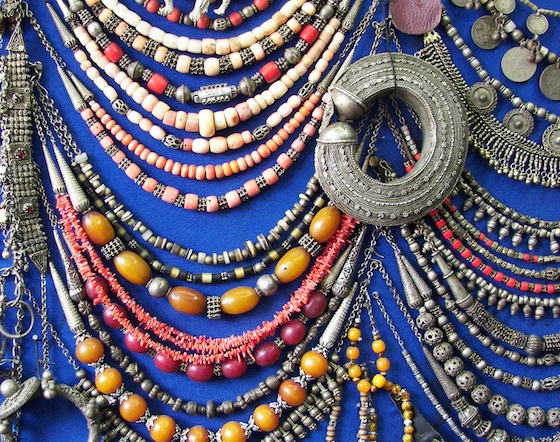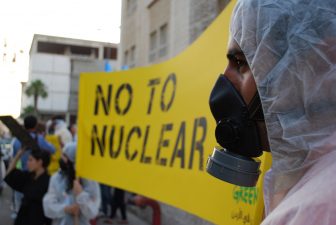Could sharing a transmision grid for renewable energy bring Arabs and Jews together?
Invited to speak by the Israeli branch of CIGRE in Israel, Jean Kowal, executive vice president of Medgrid suggested that the road to Middle East peace could be a shared and interconnected electrical grid that facilitates the addition of more green energy. The Israel-hosted CIGRE conference covered different techniques of transmitting power within, and among, the countries of the Mediterranean basin.
Like Desertec, Medgrid would link the countries with an interconnected grid, but for a different purpose. Sharing a grid makes it possible to get more power from the same number of renewable energy sources, by taking turns using them, using load swapping.” Neighboring regions can reduce individual infrastructural demands by not building duplicative power sources.
When electricity use peaks in one region, as everyone arrives home, turns on the A/C, makes dinner, runs laundry, and fires up the big TV – in the next time zone – they’ve gone to bed. Even England and France, just one hour apart, have really benefitted from such a load swap agreement.
“You can really save money and also pollution,” says Kowai. “If tomorrow we will rely more on renewable, we cannot do it without interconnecting the systems because the smaller the system is, the more difficult it is to balance it.”
Recently Egypt and Saudi Arabia agreed to swap “peak loads”. Israel is not in the loop now, but Medgrid includes 20 European Union and southeast Mediterranean countries, including Egypt, Jordan, Morocco and Syria.
Based on previous political conflicts in Europe, Kowai had high hopes for Israel’s eventual involvement.
“In Europe, we had a problem for a long time between the Soviet Union and others and one day things changed,” he told CIGRE. “I think electricity started cooperation before the political side did.”
Unlike the much more ambitious and long term Desertec plan, geared for 2050 completion, which aims to provide a significant portion of Europe’s electrical needs by shipping solar electrons from huge desert arrays in MENA nations, Medgrid aims to create an interconnected neighborhood MENA grid much sooner – by 2020, and it is intended primarily for load swapping among member nations themselves. Only 25% of the power on its grid would be sold to Europe.
First, Medgrid would ensure that the rapidly growing and rapidly greening MENA nations would be able to supply their own needs from solar and wind. By sharing a grid, they would be able to use load swapping to make use of more renewable energy, as peak hours and peak production times can be better aligned than with more tightly enclosed electrical systems within just one time zone. But so far, Israel is not a member. That is what Kowai wants to change.
“Currently, the Israeli system is isolated from the other systems,” he said. “Probably the electrical system of Israel is the strongest in the region – it would be very helpful for us if we could use this electrical system to transmit electricity.”
Kowais pitch was well received by Israel’s head of the Israel Electric Company’s Transmission Group, Alex Levinzon, chairman of CIGRE-Israel, whe expressed optimism about Israel’s eventual involvement in the shared grid.
“This is my wish and my hope, because as you know the philosophy of an island means that we cannot interconnect with any other part of the world.” Levinzon said.
“I think that it would be very good for us – we could save a lot of money for building new power stations – we don’t have enough places to build them,” he added. “I believe that it will happen. Not now, but in a few years more, it can be done.”
Related stories:
World Bank to Fund Massive Grid Expansion To Link Desertec Region and the Arab World
Post-Revolution Egypt Wants New Wind Farms
Algeria to Invest $20 Billion in Clean Energy




